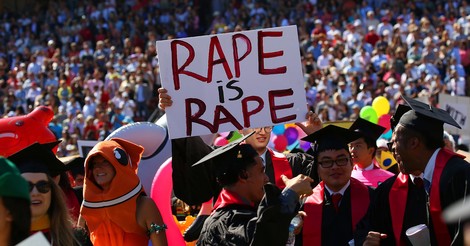Your podcast discovery platform
Curious minds select the most fascinating podcasts from around the world. Discover hand-piqd audio recommendations on your favorite topics.

piqer for: Global finds Doing Good
Michaela Haas, PhD, is the award-winning author of four non-fiction books, most recently Bouncing Forward: The Art and Science of Cultivating Resilience (Simon&Schuster). She is a member of the Solutions Journalism Network and writes a weekly solutions column for the German Süddeutsche Zeitung Magazin. Her articles have been published on CBS, the Washington Post, the Huffington Post, Daily Beast, and many other reputable media.
Flip The Script: How Women Stop Rape
Nothing works to reduce rape on campus? Not true. The initiative Flip The Script cuts sexual assault by half.
The issue is urgent: An undergraduate woman has a greater than one-in-10 chance of experiencing rape or attempted rape — it’s an enormous problem on every campus — and nothing tried so far has worked very well to reduce sexual assault overall.
That makes the extraordinary results of Flip the Script particularly noteworthy. This new 12-hour sexual assault-reduction course uses new insights into how to prevent rape.
Tina Rosenberg, the Pulitzer-winning reporter and co-founder of the Solutions Journalism Network, dives deep into why this program works while others fail.
So, how do the trainers do it?
On top of the list: Most rapists aren’t strangers lurking in the bushes. In most cases we get assaulted by acquaintances. Often there are early red flags. So addressing any warning signs is important. And the course teaches not to be nice: Crying and pleading are hardly effective, but yelling and verbal forcefulness often are.
Also important: That we know what we want and don’t want, what our desires and our boundaries are, so that we communicate them clearly.
And, last but not least: Rape is always the rapist's fault, never the victim's.
In one study, participants in the program were victims of 46 percent fewer rapes than a control group, and two-thirds fewer attempted rapes — which means that women were able to head off trouble at a very early stage.
Two years after the course ended, the results still held for attempted rape, while rapes were 31 percent lower than in the control group.
What's missing? Only two U.S. campuses use it.
Stay up to date – with a newsletter from your channel on Doing Good.
